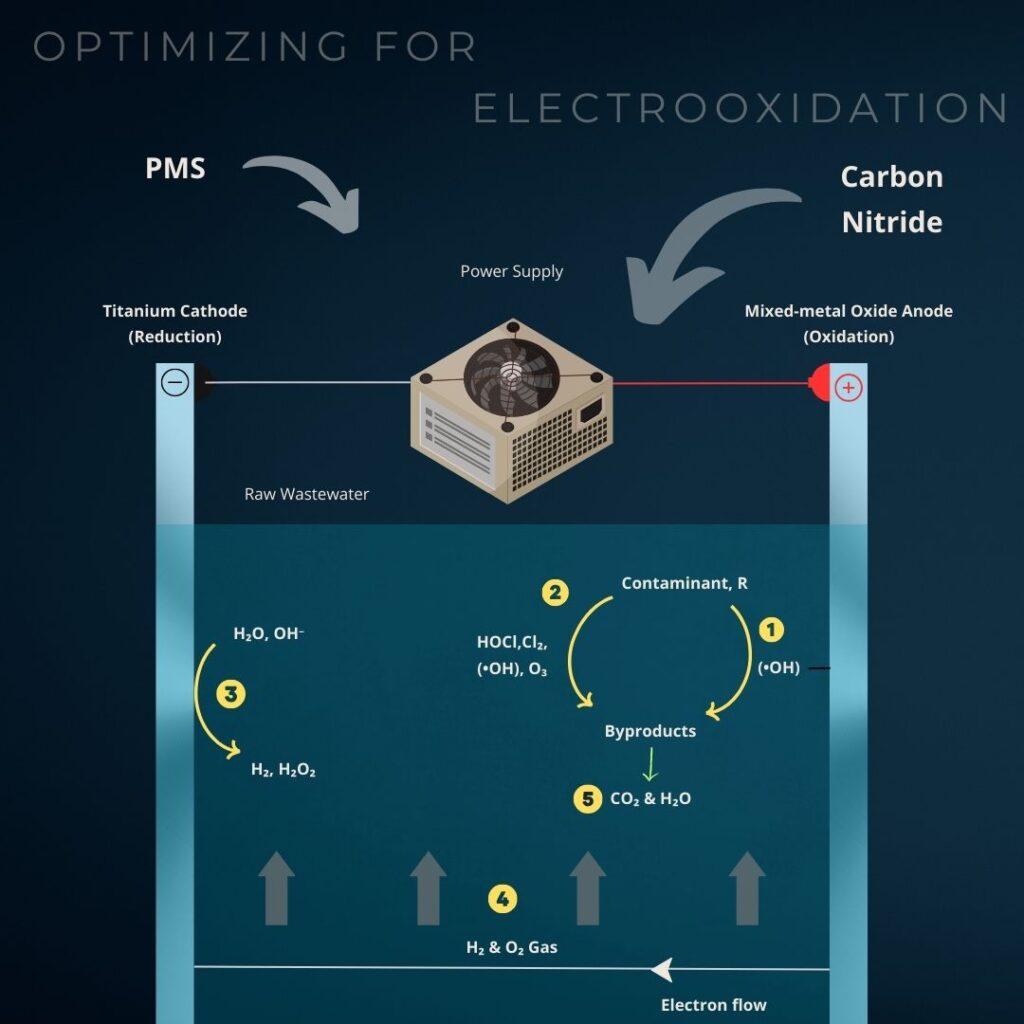Optimising electrooxidation efficiency for wastewater treatment

Oily wastewaters such as effluents originating from the palm oil industry have high levels of organic compounds that can pollute water bodies and destroy ecosystems if they are not treated properly prior to discharge. While there are several existing methods for treating oily wastewater, such as electrooxidation and sulfate radical-based advanced oxidation processes, they have limitations such as high energy requirement, short electrode lifespan, and sensitivity to type and concentration of pollutants.
To overcome these drawbacks, this project explores a novel approach for treating oily wastewaters that incorporates various catalyst designs. Through various experiments, optimisation of parameters was conducted to improve effectiveness and cost-efficiency of the treatment method.

Project Team
Student:
- Nafil Zuhair B Nizzar (Materials Science and Engineering, Class of 2024)
Supervisors:
- A/Prof Mark Philip De Lessio (mdeles@nus.edu.sg)
- Dr Mao Xianwen (x.mao@nus.edu.sg)

